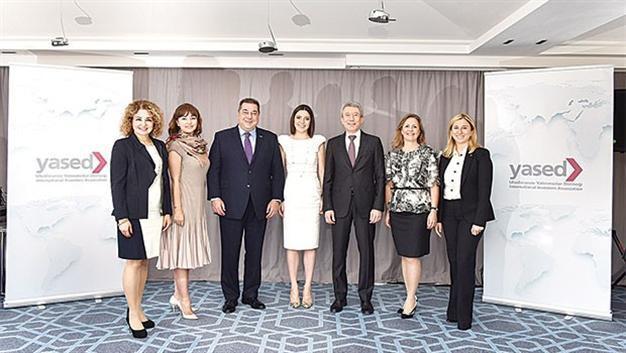Turkey’s int’l investors association develops plan to boost women employment
Elif Ergu - ISTANBUL

The International Investors Association of Turkey (YASED) has released detailed research in a report about female employment in a bid to develop a road map to boost women’s participation in the labor force and company management.
In a press meeting to launch the report, YASED representatives said an increase of only 1 percent in the number of women in the labor force may add $80 billion in value to the global economy. While male participation in the labor force was 80 percent and female participation was 50 percent globally, these figures decreased to 71 percent and 30 percent, respectively, in Turkey, according to the official data. While participation in employment was 75 percent for males and 50 percent for females globally, these figures declined to 65 percent and 27 percent, respectively, in Turkey.
YASED President Ahmet Erdem said their aim was to offer a roadmap for companies on this issue of great importance.
“According to a recent report by McKinsey, companies which have an equal number of male and female employees show 15 percent higher financial performance than others,” he said, before elaborating on the details of the YASED report.
Female employees’ demands
According to the YASED report, which was prepared upon a survey with the participation of employees from 80 YASED member companies, female employees’ biggest demand was the establishment of day care centers for their children in their offices. Some 73 percent of the women wanted to have the opportunity to work part-time, according to the YASED survey. Around 60 percent of the respondents said they wanted to have the opportunity to work from home after giving birth.
The report recommended that any discrimination based on sex in recruitment, promotion and the waging processes must be prevented in order to increase female participation in the work force. Female employees should also be offered specially-designed work programs while pregnant or rearing children, the report added.
Of the 80 companies which participated in the YASED research, the share of female general managers was 36 percent and board members was 29 percent, much higher than the country average.
According to the YASED report, the main reasons behind why women could not take part in companies’ top levels efficiently were their family and personal responsibilities and several prejudices about women’s roles and skills.
 The International Investors Association of Turkey (YASED) has released detailed research in a report about female employment in a bid to develop a road map to boost women’s participation in the labor force and company management.
The International Investors Association of Turkey (YASED) has released detailed research in a report about female employment in a bid to develop a road map to boost women’s participation in the labor force and company management.